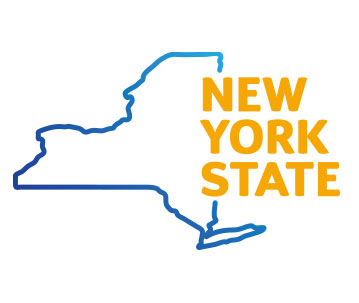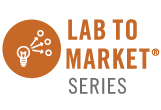|
If you are having trouble viewing this email, view online
|


|
|

|
|
|
|
The Innovation Review is the New York State Science & Technology Law Center's monthly newsletter, bringing information on a variety of economic, business, and technology related legal news as well as highlighting and profiling resources and events across the state.
|
|
|
|
|
|
|
|
|
|
|
|
Innovation Act Faces Opposition
NY BIO has joined mounting opposition to the proposed Innovation Act. Other opposition includes six major university organizations, the ABA and CAFC Chief Judge Rader. The Innovation Act is proposed to fix the problem of patent trolls (also known as non-practicing entities), preying on startups and companies who cannot afford to defend against demands for licensing fees based on alleged infringement. The problem is that the patent being asserted against the companies may not be valid, and mounting a defense through litigation is expensive and risky. An increasing number of companies subject to this tactic are seeking help, and hoping the Innovation Act is the answer. (This dilemma is to be the subject of a film being produced called Trolls).
The opposition to the Act cites concern that the legislation will weaken patents and decrease the willingness of investors to commit to projects that are dependent on patents for profitability. Opponents and position letters are compiled here.
|
|
|
Amgen v. Sandoz Ruling and Its Implications for Biologics Law
In Amgen v. Sandoz, decided July 21, the U.S. Court of Appeals for the Federal Circuit reviewed the Biologics Price Competition and Innovation Act of 2009 (BPICA) for the first time. The BPICA is the law for approving copies of biosimilars, imitations of drugs known as biologics, which differ from typical generic drugs because they are not identical to the original biologic. The case centered on whether Sandoz failed to follow regulatory rules when applying to sell its drug. The regulatory steps involved in getting biosimilar approval, called the “patent dance”, include information-sharing and notifications, some of which Sandoz did not do because it was unclear whether those steps were mandatory. Amgen argued they were but both the trial judge and the Federal Circuit agreed they were not.
However, despite the win for Sandoz, legal scholars expect there to be further action on the issue of these regulatory steps through either legislation or additional court cases.
|
|
|
Trade Secrets and the Federal Economic Espionage Act
Protection for trade secrets in New York State is usually discussed in terms of civil remedies. A recent Patent Docs article discusses a situation in which a computer programmer employed by Goldman Sachs was criminally prosecuted after he sent portions of the trading code he worked on to a website in Germany before accepting new employment. Both the U.S. Attorney and the Manhattan District Attorney sought criminal prosecution of the programmer. Although neither were successful, the Federal Economic Espionage Act of 1996 (EEA) was amended for future cases so that misappropriation of computer code that is supposed to be confidential and is used in relation to a service performed in interstate commerce will be an offense. See the Berkman Center for Internet & Society Digital Medial Law Project for more information on the Basics of a Trade Secret Claim.
|
|
|
|

|
Announcement of New Manufacturing Innovation Hub in Rochester
Vice President Joe Biden was in Rochester, NY on July 27th to announce the awarding of a $110 million federal grant for the creation of the American Institute for Manufacturing Integrated Photonics. The award comes from a national competition to advance U.S. photonics manufacturing capability and will be headquartered in Rochester. In addition to the $110 million from the U.S. Air Force Research Laboratory, another $250 million will be provided by the State of New York and additional funding commitments from public and private partners are expected to exceed $245 million over the next five years. The proposal for the institute was a result of 90 academic and industry partners including the University of Rochester, SUNY Polytechnic Institute, RIT, MIT, University of Arizona, University of California-Santa Barbara, and Columbia University as well as Boeing, IBM, Intel, Hewlett-Packard, Lockheed Martin, Infinera, Corning, and Synopsis.
|
|

|
Governor Cuomo Announces $17 million to Fund Economic Development Projects
Governor Cuomo announced funding for 22 economic development projects across the state totaling nearly $17 million. The funding was recently approved by Empire State Development’s Board of Directors and will be utilized by projects ranging from a marketing program for tourism that supports regionally themed New York-focused projects to subsidizing costs of equipment and curriculum development to provide employees of Long Island manufacturers with training in composites and advanced manufacturing. A complete list of funded projects is available here.
|
|

|
New Venture Capital Fund Announced in Central New York
Pinnacle Investments, a 20-year-old Syracuse company, says it plans to launch a $100 million venture capital fund to invest in young companies in Central New York. Gregg Kidd, chairman and co-founder of Pinnacle, said the fund will set minimum investment at about $2 million. He also stated the fund, named the Central New York Wealth Fund, will utilize Thomas Smach, a founding partner of a private-equity firm in Menlo, California, as special advisor to the fund. The Central New York Wealth Fund would be the second venture fund to locate in Syracuse. Armory Square Ventures, the first venture capital firm in Syracuse, was launched in 2014.
|
|
|
|
Educational Opportunities
|
|
|
|

|
Lab to Market Webcast Presented by Lisa A. Dolak
On August 6th, the New York State Science & Technology Law Center is hosting a webcast on licensing law. Lisa A. Dolak, Angela S. Cooney Professor of Law at Syracuse University College of Law, will be presenting from 12pm to 1pm. Dolak will review recent developments affecting licensing law and practice, including in the areas of post-expiration royalties, patent-eligible subject matter, and patent exhaustion. The webcast is free but registration is required. To keep up with future webcast dates and view older ones, please check our webcast page.
|
|
|
Free Webinar on Patent Subject Matter Eligibility
Thursday, August 27th, McDonnell Boehnen Hulbert & Berghoff LLP is offering a webinar covering the new changes to patentability under recent Supreme Court decisions, especially relating to Life Sciences. The webinar is scheduled for 11am and will last 1 hour and 15 minutes. Attendees must register in advance.
|
|
|
If you no longer wish to receive email communications such as this from the New York State Science & Technology Law Center, unsubscribe here.
310 Dineen Hall • Syracuse, NY 13244 • nysstlc@law.syr.edu • nysstlc.syr.edu
|
|
